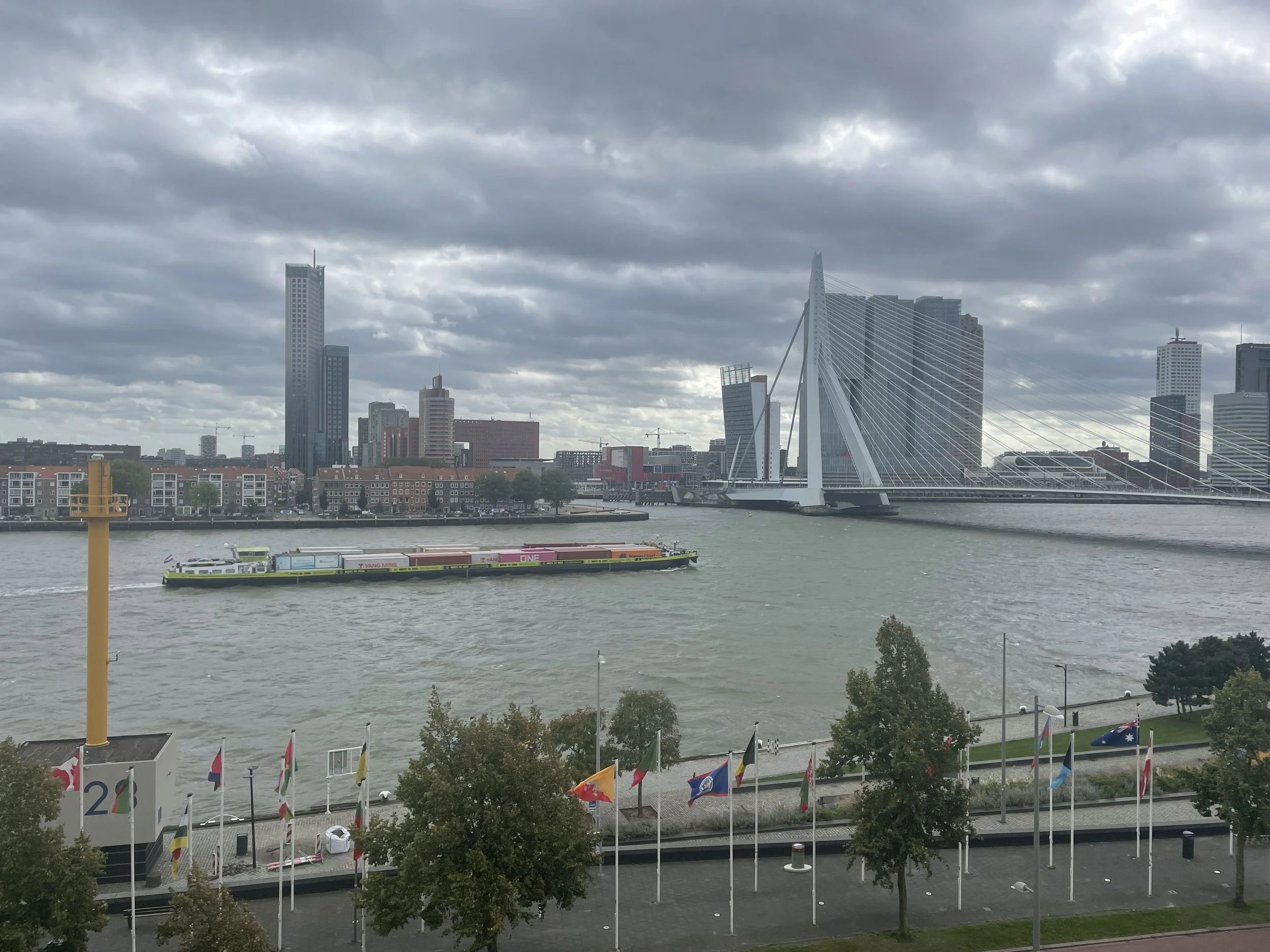Batteries, Hydrogen, and Wind, but also smaller ships can help the maritime industry towards zero emissions.
On 11 and 12 September the Maritime Battery Forum attended the ShipZERO 28 workshop organised by the Zero Emissions Ship Technology Association (ZESTAs). A group of 100 experts in maritime energy transition solutions joined forces at the headquarters of the International Maritime Organization (IMO) in London to discuss the current challenges of 3 different types of shipowners on their journey towards zero emissions.
H2 Barge 1 sailing on Hydrogen through Rotterdam
One thing that is widely agreed upon is that electric propulsion for ships will play an important role in the future. Batteries will be vital to optimize the energy consumption of electric ships and therefore make the use of alternative fuels feasible. A good example of this is ships powered by Hydrogen fuel cells. Batteries and fuel cells are not competitive technologies, but more complementary technologies. Hydrogen fuel cells need batteries for energy optimization, peak shaving, or as boost function. Batteries need Hydrogen fuel cells for long range applications.
Currently operating examples of Hydrogen fuel cell and battery powered hybrids are the ferry “MF Hydra” and the inland container barge “H2 Barge 1”. The MF Hydra is owned by Norled and operates between Hjelmeland-Skipavik-Nesvik in Norway, with a capacity of up to 300 passengers and 80 cars. MF Hydra has fuel cells of 2x200 kW and a 1356 kWh battery system. The H2 Barge 1 is owned by Future Proof Shipping and sails between the Netherlands and Belgium with a capacity of 208 TEU, powered by a fuel cell system with 3 x 275 kW and a battery system with 2 x 274 kWh.
Another discussion point during the ShipZERO 28 workshop was that all the possible measures to reduce the energy consumption of ships should be utilized as much as feasible. This can be measures like hull, propeller, or route optimization, but another very hot topic now is wind assisted propulsion. Sailing with the force of the wind is something that the industry has many years of experience with, and recently came back to the attention of shipping companies to reduce their fuel consumption. Whether it is kites, rotor sails, suction sails, or wings, we will see them all installed on more ships soon.
The final interesting point of view that was shared during the workshop was perhaps the idea of making ships bigger and bigger is something of the past, and that we should investigate making ships smaller and more autonomous to make it easier to transition to zero emission solutions. Small, agile ships that require less time in port for loading and unloading cargo, and therefore can sail at a slower speed without increasing the overall delivery time to consumers.
It was an interesting 2 days discussing the challenges of the maritime industry in a zero-emission future at the ShipZERO 28 workshop. Along with many other technologies, batteries are a part of the solution to reduce the emissions of all different types of ships. The Maritime Battery Forum with our members are ready to take on the challenge, and work on our mission to accelerate the adoption of safe maritime battery solutions to reduce emission.

